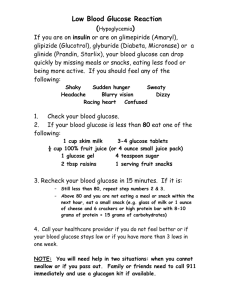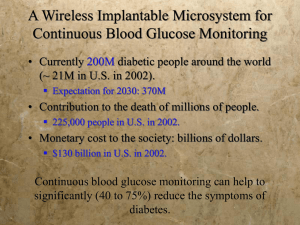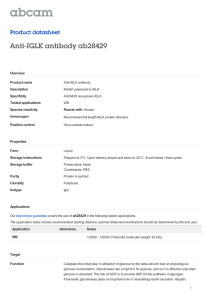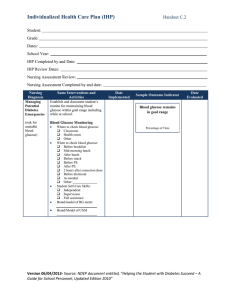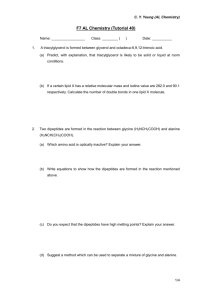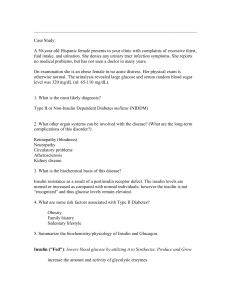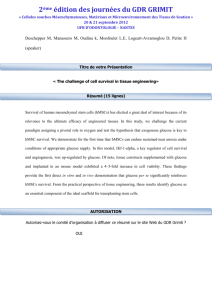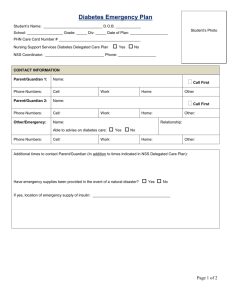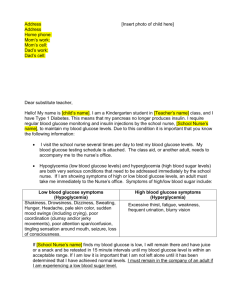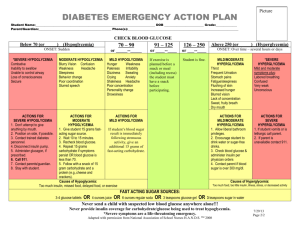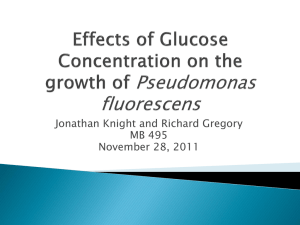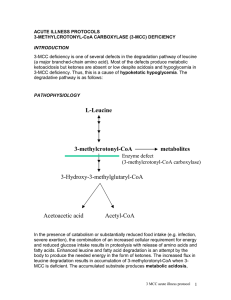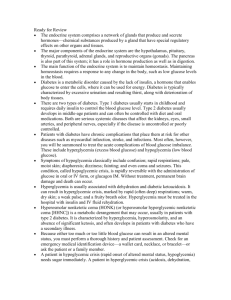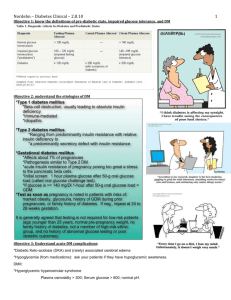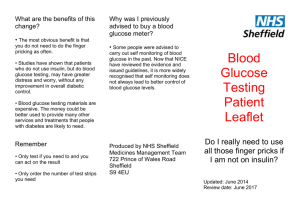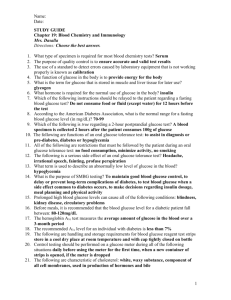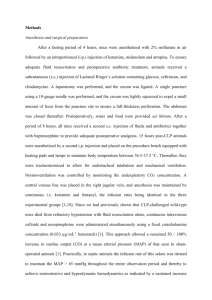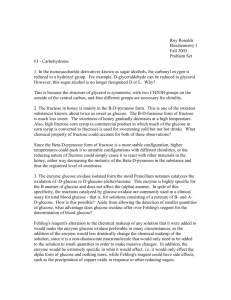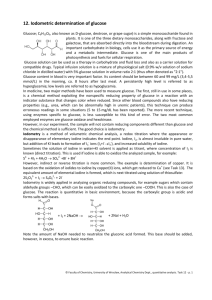Committee on Fetus and Newborn
advertisement
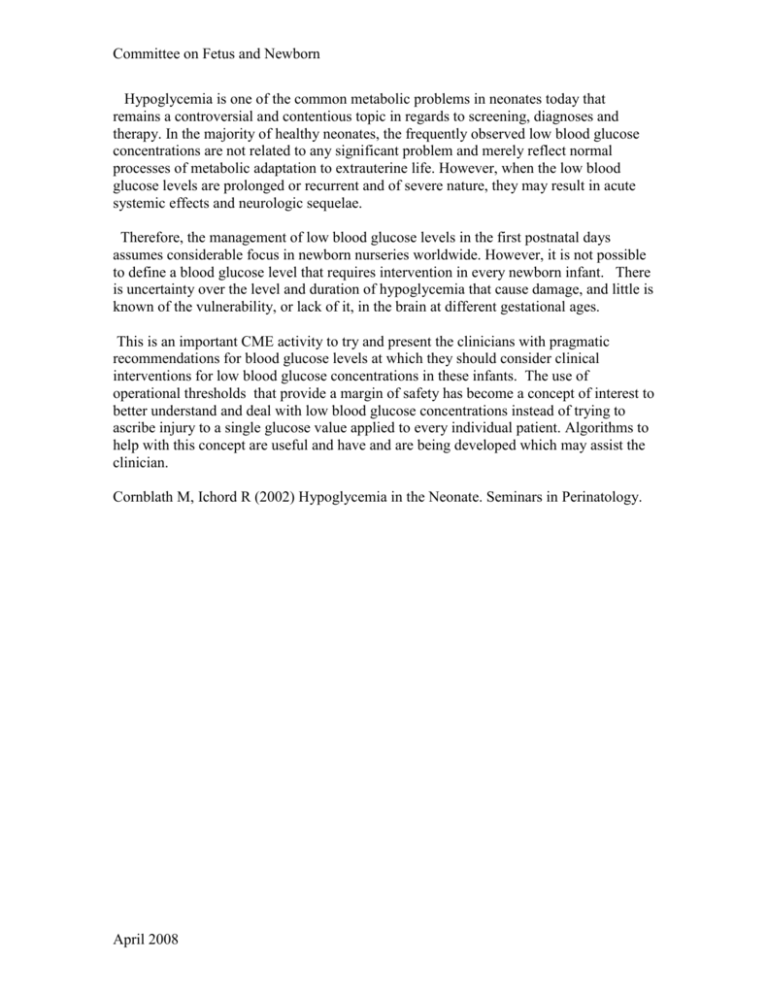
Committee on Fetus and Newborn Hypoglycemia is one of the common metabolic problems in neonates today that remains a controversial and contentious topic in regards to screening, diagnoses and therapy. In the majority of healthy neonates, the frequently observed low blood glucose concentrations are not related to any significant problem and merely reflect normal processes of metabolic adaptation to extrauterine life. However, when the low blood glucose levels are prolonged or recurrent and of severe nature, they may result in acute systemic effects and neurologic sequelae. Therefore, the management of low blood glucose levels in the first postnatal days assumes considerable focus in newborn nurseries worldwide. However, it is not possible to define a blood glucose level that requires intervention in every newborn infant. There is uncertainty over the level and duration of hypoglycemia that cause damage, and little is known of the vulnerability, or lack of it, in the brain at different gestational ages. This is an important CME activity to try and present the clinicians with pragmatic recommendations for blood glucose levels at which they should consider clinical interventions for low blood glucose concentrations in these infants. The use of operational thresholds that provide a margin of safety has become a concept of interest to better understand and deal with low blood glucose concentrations instead of trying to ascribe injury to a single glucose value applied to every individual patient. Algorithms to help with this concept are useful and have and are being developed which may assist the clinician. Cornblath M, Ichord R (2002) Hypoglycemia in the Neonate. Seminars in Perinatology. April 2008

